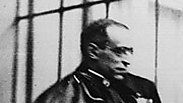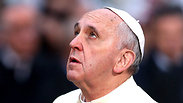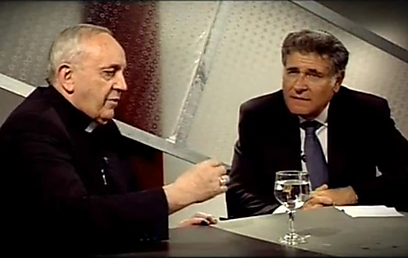

Skorka made the comments in an interview to the Sunday Times, but the report has yet to be officially confirmed by the Holy See.
Video courtesty of jn1.tv
Skorka, a 63-year-old Argentine rabbi, said he discussed the controversial issue of Pius XII with Pope Francis during a week he spent in the papal residence, St. Martha’s House, in September.
According to the Sunday Times, it was the first time a pope and a rabbi have lived under the same roof in the Vatican.
Pope Pius XII, born Eugenio Pacelli, has been accused of turning a blind eye to the Nazis' annihilation campaign across Europe. So far the archives have remained sealed in the Vatican, despite different requests made by Jewish officials over the years to make them accessible to the public and to researchers.
The current pope, known for his reformist leanings, may publicize one of the most controversial chapters in the history of the Catholic Church, and determine once and for all whether Pius was indeed aware of the Nazi genocide of Europe's Jews, and his exact stance on the matter.
"The pope is consistent with all he said as a cardinal," Skorka asserted, "and as pope he will undoubtedly make happen what he said he would do when he was a cardinal."
Skorka is the rabbi of the Benei Tikva community in Buenos Aires, rector of the Seminario Rabinico Latinoamericano (Latin American Rabbinical Seminary) and a professor of biblical and rabbinic literature, and is considered a close friend of Pope Francis from his days as a cardinal. The two co-hosted a television show in Argentina, "Bible: A Dialogue for Today."
The successful show even led to a co-authored book, "On Heaven and Earth," which included dialogues on Judaism and Roman Catholicism dealing with, as the rabbi told Ynet, "a variety of issues which interest the common man: Death, God, history, the State of Israel and the Israeli-Palestinian conflict."
Controversial Pius
Yad Vashem, Israel's official memorial for the Jewish victims of the Holocaust, welcomed the news.
"We see great importance in opening the Vatican's Holocaust-era archives, so that researchers are able to get a clearer picture on the issue of the Vatican and Pius XII's conduct during the Holocaust," the Jerusalem-based institution said in a statement, noting that "the previous pope, Benedict XVI, was also in favor of opening the archives."
The historic background of the "archive dispute" actually began with Pope Pius XI, born Achille Ratti, who was represented at the time by then-Vatican Secretary of State Eugenio Pacelli, who went on to become Pope Pius XII. The latter signed on his behalf a treaty with Nazi Germany in a bid to maintain the Catholic Church's rights in Germany.
According to Yad Vashem, Pius XII's response to the extermination of Jews during the Holocaust remains a controversial issue among researchers.
From the beginning of World War II, the Vatican maintained a neutral policy, and the pope even avoided signing the Allies' declaration on December 17, 1942, which condemned the extermination of Jews.
But in a Christmas address on Vatican Radio on December 24, 1942, he referred to "those hundreds of thousands who, without any fault on their part, sometimes only because of their nationality or race, have been consigned to death or to a slow decline." Jews were not explicitly mentioned.
When Rome's Jews were sent to Auschwitz, the Holy See avoided a public protest. Yet in two separate cases, Hungary and Slovakia, the pope did intervene in favor of the Jews.
















